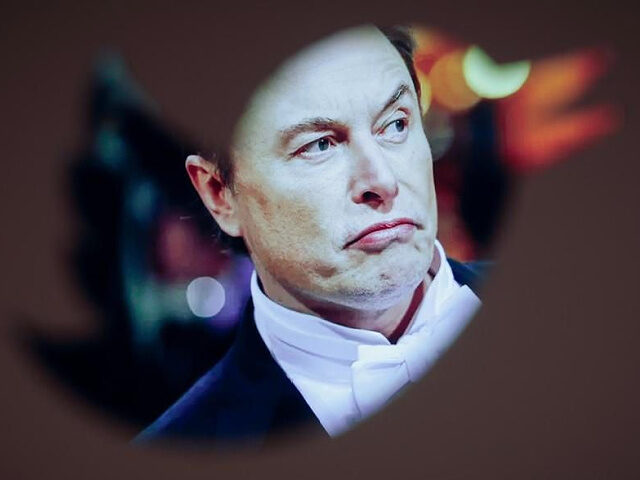The European Union has threatened to levy sanctions against Twitter following the suspension of several establishment media journalists over allegedly sharing private location of Elon Musk’s jet.
On Thursday evening, Twitter suspended journalists from CNN, Mashable, New York Times, Washington Post, Vox, and former MSNBC host Keith Olbermann for alleged violations of the platform’s updated terms of service on doxxing, or the exposing of private details such as location or address on the internet.
“Any account doxxing real-time location info of anyone will be suspended, as it is a physical safety violation,” Musk tweeted Wednesday. “This includes posting links to sites with real-time location info. Posting locations someone traveled to on a slightly delayed basis isn’t a safety problem, so is ok.”
The suspensions reportedly surrounded the linking to a tracker of Musk’s private jet. While many have claimed that this was publicly available information, the new Twitter boss said that “my plane is actually not trackable without using non-public data”.
The tracker was created by American programmer Jack Sweeney, who has admitted that while Musk had used a Privacy ICAO Address (PIA) to protect the identity of people using private aircraft, he said that his software was able to still identify the plane.
In response to the move to suspend the journalists who shared the information, EU commissioner Vera Jourova said that Twitter may face sanctions under the bloc’s newly implemented Digital Services Act (DSA) for, it is claimed, failing to protect media freedom.
“[The] EU’s Digital Services Act requires respect of media freedom and fundamental rights. This is reinforced under our Media Freedom Act,” she wrote on Twitter.
“Elon Musk should be aware of that. There are red lines. And sanctions, soon,” the EU commissioner said, adding that “news about arbitrary suspension of journalists on Twitter is worrying.”
The warnings from the EU seemingly contradict the bloc’s typically censorious attitude. The Digital Services Act (DSA) which came into force last month greatly expands the ability of Brussels to police so-called ‘hate speech’ and ‘disinformation’ through the addition of punishment mechanisms against internet platforms that fail to abide by the bloc’s rules.
If companies like Twitter fail to comply with the DSA by February of 2024, the EU will be able to impose fines of up to six per cent of their global revenue and even possibly ban the platform altogether, a threat that they have already made against Twitter following Musk’s takeover.
While the EU reacted with outrage over the temporary suspensions of establishment media journalists, this was not the case following the permanent ban of Donald Trump.
Days after Twitter took the unprecedented action of banning the sitting president of the United States — a move that came despite Twitter internally acknowledging that his posts did not violate their terms of service — European Commissioner for Internal Market Thierry Breton said that Twitter and other tech companies that banned Trump “have recognised their responsibility, duty and means to prevent the spread of illegal viral content”.
Mr Breton, who was the leading force behind passing the Digital Services Act, has been at the forefront of issuing demands to Elon Musk since the takeover to continue to police hate speech and disinformation on the platform, saying that: “In Europe, the bird will fly by our rules.”
Follow Kurt Zindulka on Twitter here @KurtZindulka

COMMENTS
Please let us know if you're having issues with commenting.